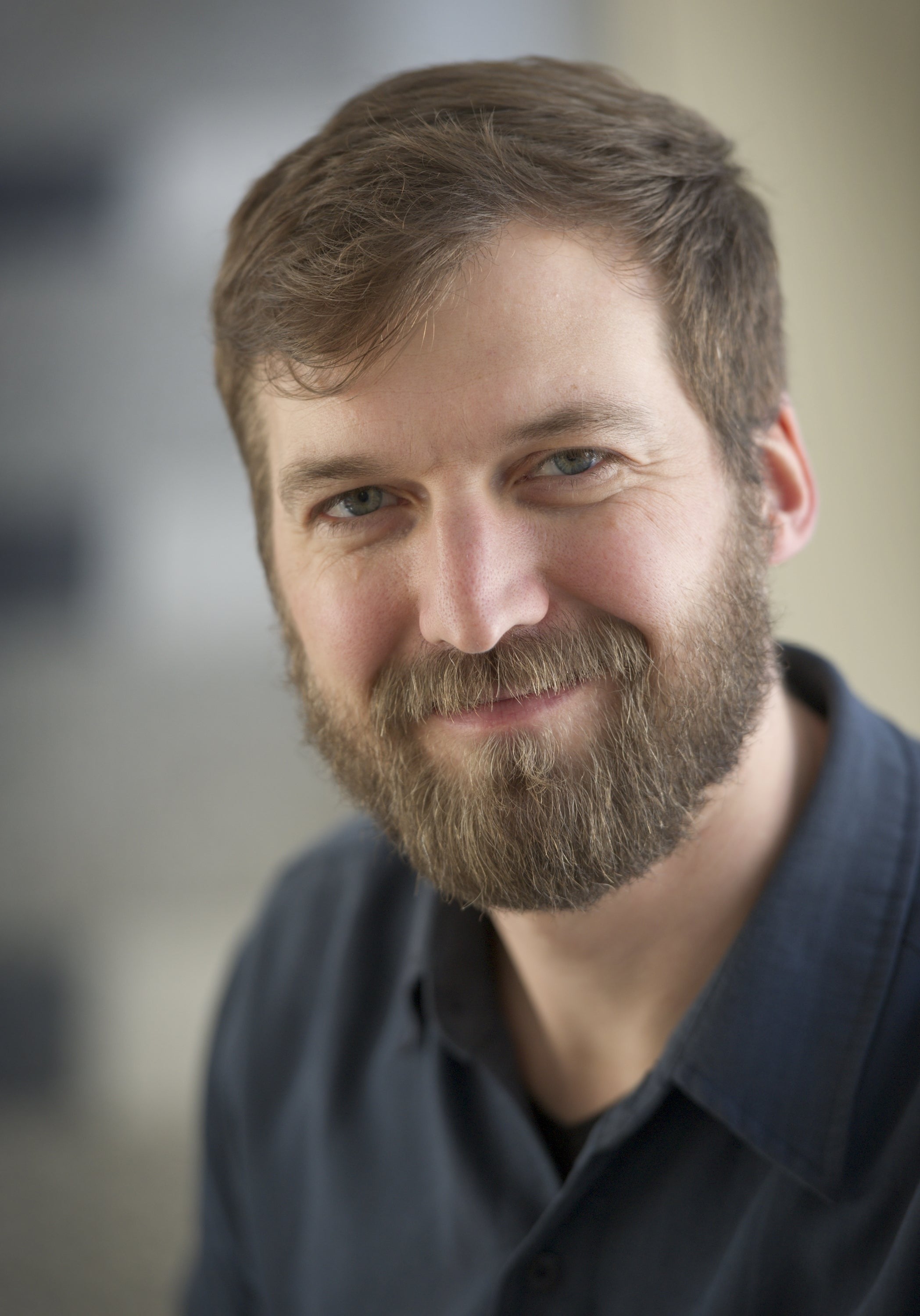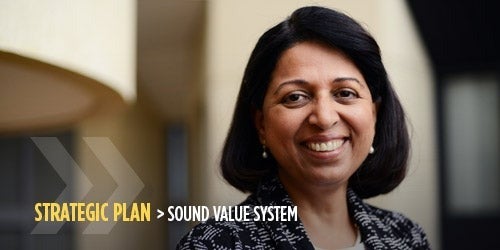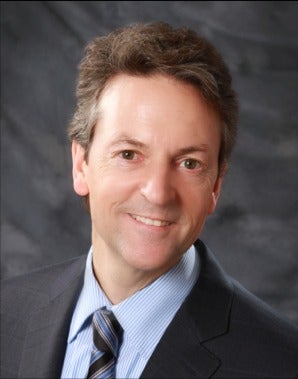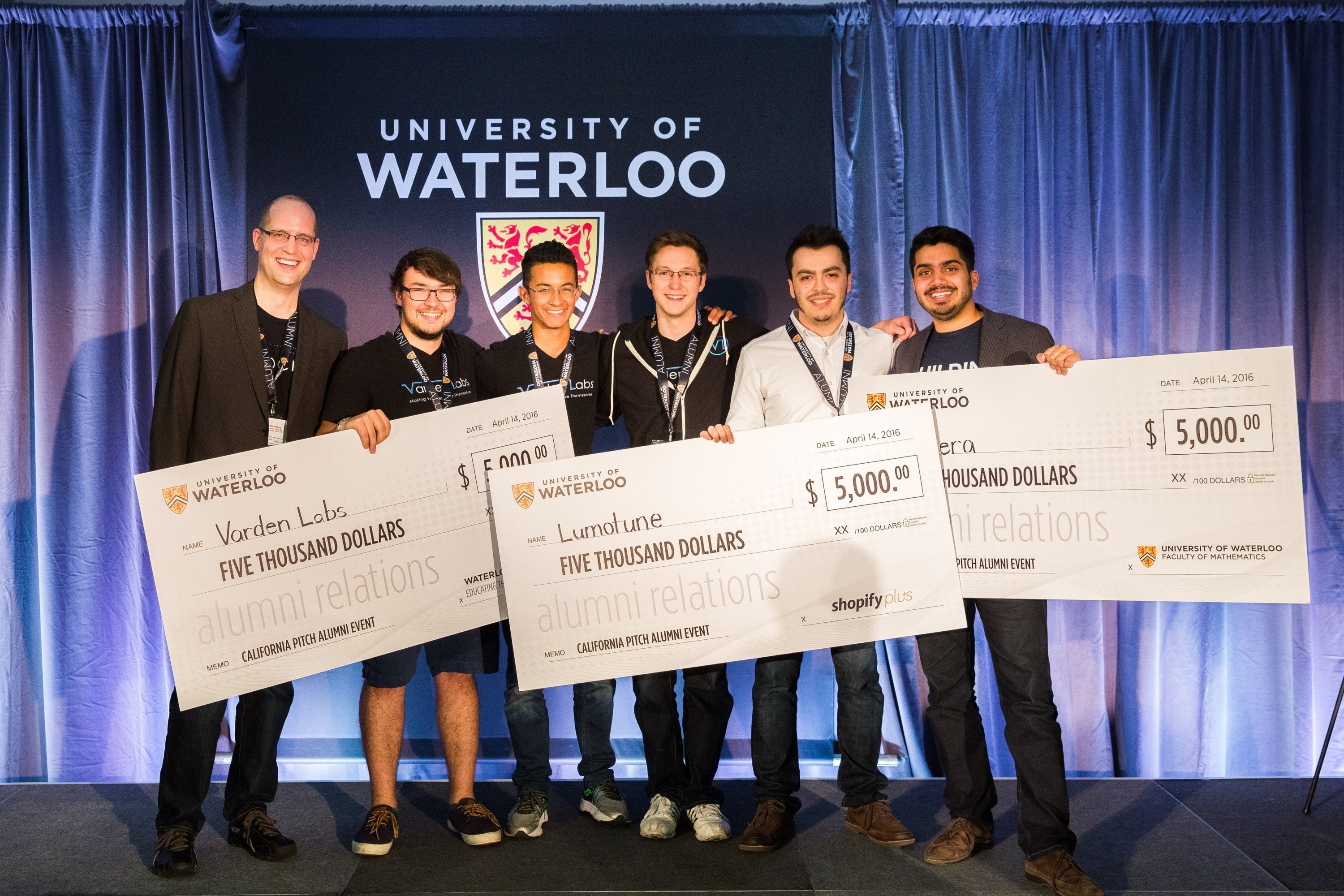Editor:
Brandon Sweet
University Communications
bulletin@uwaterloo.ca
Physicist honoured for early-career achievement
by Victoria Van Cappellen.

Professor Roger Melko from the Department of Physics and Astronomy was awarded the 2016 Canadian Association of Physicists (CAP) Herzberg Medal for his outstanding early-career achievements in condensed matter physics.
Melko is a leader in the field of quantum many-body physics. His large-scale computer simulations have significantly contributed to our understanding of strongly interacting condensed-matter systems. He is the Canada Research Chair in Computational Quantum Many-Body Physics, an affiliate member of the Institute for Quantum Computing at Waterloo, and an associate faculty member at the Perimeter Institute for Theoretical Physics.
“Roger Melko’s work demonstrates the transformative research taking place in the Faculty of Science at Waterloo. The ripple effects of these breakthroughs make the impact more powerful and long-lasting,” said Bob Lemieux, dean of the Faculty of Science at Waterloo. “He’s extremely deserving of this national recognition.”
Melko is best known for his 2010 work using quantum Monte Carlo simulations to evaluate entropic measures of entanglement in condensed matter. Entanglement is the special connection between pairs or groups of quantum systems. Melko’s new approach to studying quantum entanglement has facilitated collaborations among a variety of fields in quantum physics.
"It's exciting to see entanglement and other ideas from quantum information being adopted by condensed matter and materials physics,” said Melko. “The potential of this new multi-disciplinary field is exciting, and I expect to see many new developments and breakthroughs in the near future as a result.”
Melko will receive his medal in Ottawa on June 16 from Professor Arthur B. McDonald, winner of the Nobel Prize in Physics 2015.
He is the second physicist from Waterloo’s Faculty of Science to win this prestigious award. Professor Michel Gingras received it in 2001 for his theoretical work on the role of random disorder in condensed matter physics.
Why equity matters

This is the latest in a series of #UWStratPlan stories that profile some of the initiatives that are part of the robust efforts to implement the Strategic Plan.
The University of Waterloo campus and the people who work or study here, are part of a dynamic process of adaptive social change.
Mahejabeen Ebrahim, Waterloo’s first director of equity, is responsible for illuminating a topic that is often misunderstood, even on open-minded university campuses in the 21st century.
Equity, in the sense of treating everyone the same, is a dated concept, she says. Now equity is about regarding opportunity as something within everyone’s grasp, and supporting those who need a bit of help to secure it.
"Individuals achieving their potential creates a path for institutional success, which then helps society be more successful," Ebrahim says. "When we create a path for individuals to be successful, we create a path for the University of Waterloo to be the most innovative."
Waterloo’s Equity Office opened two years ago, an initiative driven by President Feridun Hamdullahpur and the Provost’s Advisory Committee on Equity. Among the eight themes of the University’s Strategic Plan, equity comes under creating a sound value system.
The office supports such initiatives as:
- HeForShe: Waterloo is the only Canadian institution in this global movement, which seeks to close the equity gap between men and women.
- Equitable hiring: The office is working with deans and department chairs to uproot latent biases and refresh recruitment policies. Increasing the number of female faculty, for example, is one of Waterloo’s HeForShe commitments.
- Personal safety: Waterloo is putting into practice the recommendations of safety audits conducted at on-campus residences and the School of Architecture in Cambridge;
- Sexual violence awareness: The office promotes safe relationships, and takes the view that ending sexual violence is a shared responsibility on campus.
Equity covers a wide range of interests, from the advancement of women into faculty and leadership roles, to the comfort of transgender individuals in a washroom.
Read the rest of the article on the Strategic Plan website.
Richard Myers named St. Paul's principal

St. Paul’s University College has announced that political scientist Richard Myers has been appointed Principal for a five-year term as of July 2016.
Professor Myers has most recently been president of Algoma University, where he substantially improved relations with the local community and with Aboriginal partners in the area, and grew enrolment and revenues. He also oversaw the completion of a new science building and the expansion of Algoma’s athletics centre.
Prior to that, Myers was Vice-President Academic at St. Thomas University in Fredericton, and taught there for close to 20 years, in both French and English. He received his BA, MA, and PhD in political science from the University of Toronto, and is the co-author of a popular Canadian introductory textbook called The Canadian Regime. He was born in Chatham, Ontario.
“The St. Paul’s Board of Governors believes that Dr. Myers has the perfect qualifications and background to carry forward the excellent work St. Paul’s has done in areas such as Aboriginal education, international development, and social entrepreneurship,” said Rod Barr, Chair of the St. Paul’s board. “We are delighted to welcome him to the community.”
Professor Myers will take over from St. Paul’s longest-serving principal, Professor Graham Brown, who is stepping down after 17 years. Brown will be acting as Special Advisor to the Principal until December 2017 in order to help finalize existing initiatives at the institution.
Pitch contest not just California dreamin'

a message from Alumni Relations.
On Thursday, April 14, President and Vice Chancellor Feridun Hamdullahpur and Alumni Relations hosted a pitch competition with the support of Velocity at the Computer History Museum in Mountain View, California.
Director of Velocity Mike Kirkup served as emcee for the event, which showcased the entrepreneurial ecosystem at the University of Waterloo and included a live pitch competition by Velocity student and alumni startups, followed by a networking reception.
Alumni, co-op students, and guests were invited to play an interactive role in determining the competition winners. This year, three $5K prizes were up for grabs and the winning companies were:
- Lumotune uses nanomaterials to create unique digital displays.
- Varden Labs is using self-driving technology to develop a shuttle system for resorts, gated communities, and large campuses.
- Voltera is developing a printer that enables low-cost circuit boards to be prototyped within minutes, eliminating frustrations with the traditional circuit board fabrication process.
The event also featured pitches from Georgette Packaging, HealthIM, Medella Health, Palette, Pitstop, Vertical, and Vitameter.
A big thank you to Shopify Plus, the generous supporting sponsor of the California Pitch Alumni Event.
Check out more about the event on Storify. Congratulations to all of the talented and innovative teams who pitched their exciting startups.
Fire Drills postponed and other notes
The fire drills in academic and administrative buildings originally scheduled to take place today have been cancelled due to the wet weather. The fire drills will instead take place on the rain date of Thursday, April 28.
And now, a special message: “We would like to wish Rosalind Klein all the very best, as she celebrates a ‘milestone' birthday today. Happy Birthday Rosalind - from your friends and colleagues in the Electrical and Computer Engineering Department.”
Upcoming Arts Undergraduate Office closure
The Arts Undergraduate Office, located in PAS 2439 will be closed on Wednesday, April 27 from 8:30 a.m. to 9:30 a.m.
Upcoming Science Undergraduate Office closures
The Science Undergraduate Office (SUO) will be closed on Wednesday, April 27 from 11:30 a.m. to 1:00 p.m. and on Thursday, April 28 from 12:00 p.m. to 1:30 p.m., due to staff events.
"We apologize for any inconvenience this may cause," says the official announcement.
The SUO is located in STC 2031. Check the SUO webpage for regular office hours.
Don't forget to sign up for the office's drop-in hours.
Link of the day
30 years ago: the Chernobyl disaster
When and where
Waterloo Global Science Initiative (WGSI) OpenAccess Energy Summit, Sunday, April 24 to Wednesday, April 27.
Science and Values in Peirce and Dewey: A Conference in Honour of Angus Kerr-Lawson, Monday, April 25 to Wednesday, April 27.
Staff and Faculty Yoga Classes, Tuesday, April 26 and Wednesday, April 27, 12:05 p.m. to 12:55 p.m., SLC Multipurpose Room. For more information or to reserve a space contact Sandra Gibson at sandra.gibson@uwaterloo.ca.
Mark Haslett retirement event, Tuesday, April 26, 3:30 p.m. to 5:30 p.m., University Club. RSVP by April 22 to Graham Yeates at ext. 32281 or gyeates@uwaterloo.ca.
Cultural Men and Natural Women? Gender and Development, Wednesday, April 27,9:30 a.m. to 4:30 p.m., Alumni Hall, St. Paul’s University College.
Chemistry Department Seminar Series featuring Prof. Xing-Fang Li, Department of Laboratory Medicine and Pathology, University of Alberta, “Detection of Pathogens and Trace Disinfection Byproducts of Health Relevance” for Wednesday, April 27, 10:00 a.m., C2-361.
Water Institute Research Symposium 2016, Thursday, April 28.
Teaching and Learning Conference: OND 2016, Thursday, April 28, Hagey Hall.
Centre for Career Action staff panel, “You’re In Charge: Excel in Your Career at Waterloo,” Thursday, April 28, 12:00 p.m. to 1:30 p.m., DC 1351.
Farewell reception for Dan Anderson, Thursday, April 28, 2:30 p.m. to 4:30 p.m., Police Services office, COM112D.
Water Institute RBC Distinguished Lecture 2016 by Jay Famiglietti, University of California Irvine, “Water and sustainability: 21st Century realities and the global groundwater crisis,” Thursday, April 28, 4:00 p.m., DC 1350.
Water Institute RBC Distinguished Lecture 2016 featuring Jay Famiglietti, California Institute of Technology and University of California, Irvine, "Water and sustainability: 21st century realities and the global groundwater crisis," Thursday, April 28, 4:00 p.m., DC 1350.
Biology Graduate Student Research Symposium 2016, Friday, April 29, Science Teaching Complex.
The Inherent Right to Self-government: A New Context for Indigenous Innovation, Monday, May 2, 11:30 a.m., STP 228.
WISE Public Lecture Series: Forensic Energy Management, Tuesday, May 3, 10:30 a.m., CPH 4333.
UWSA Lunch 'n Learn: Fraud and Identity Theft, Tuesday, May 3, 12:00 p.m., DC 1302.
Alexander von Humboldt Fellowship and Research Support Information Session, Wednesday, May 4, 10:30 a.m., QNC 1501.
Address by Bruce Heyman, the United States Ambassador to Canada, Wednesday, May 4, 11:00 a.m., CIGI campus auditorium.
Centre for Teaching Excellence workshop, CTE759: Designing Teaching and Learning Research, Wednesday, May 4, 11:30 a.m. to 1:30 p.m., LIB 329.
Centre for Teaching Excellence workshop, CTE914: Teaching Dossiers and Philosophy Statements, Wednesday, May 5, 10:00 a.m. to 1:00 p.m., EV1-241.
The Mathematics of Hedge Fund Fees, Wednesday, May 5, 4:00 p.m. to 5:00 p.m., M3 3217.
Symposium on Aging Research, Friday, May 6, 8:00 a.m. to 4:30 p.m., DC 1301.
Writing Centre workshop, "Clarity in Scientific Writing," Tuesday, May 10, 2:30 p.m. to 4:30 p.m.
WatRISQ Seminar by Professor Luis Seco, University of Toronto; and President and CEO, Sigma Analysis & Management, “The Mathematics of Hedge Fund Fees,” Tuesday, May 10, 4:00 p.m., M3 3127.
Writing Centre workshop, "Getting Published," Wednesday, May 11, 12:30 p.m.
Public lecture featuring Dick Peltier, University of Toronto, "Ocean turbulence and global climate variability in the ice-age," Wednesday, May 11, 7:00 p.m., EIT 1015.
Writing Centre workshops, "Creating assertion-evidence presentations,"Thursday, May 12, 1:30 p.m.
David Sprott Distinguished Lecture featuring Martin Wainwright, "Some new phenomena in high-dimensional statistics and optimization," Thursday, May 12, 4:00 p.m., DC 1302.
Waterloo Unlimited Grade 10 - Change, Sunday, May 15 to Thursday, May 19.
Centre for Teaching Excellence workshop, CTE601: Instructional Skills Workshop (24 hours), Monday, May 16 to Wednesday, May 18, 8:30 a.m. to 4:30 p.m., EV1-241.
Writing Centre workshop, "Literature reviews for grads (Part A): Organizing research,"Monday, May 16, 11:30 a.m.
Senate meeting, Monday, May 16, 3:30 p.m., NH 3407.
Writing Centre workshop, "Say it in your own words: Paraphrase & summary," Tuesday, May 17, 10:30 a.m.
Caregiving for aging parents and other family members - Opportunities and unmet challenges, Thursday, May 19, 11:00 a.m., LHI 1621.
Victoria Day holiday, Monday, May 23.
Belonging: Diversity, Community Capacity & Contribution - An Evening with The Right Honourable Adrienne Clarkson, Wednesday, May 25, 6:00 p.m., Humanities Theatre.
You @ Waterloo Day, Saturday, May 28, various locations on campus.
Undergraduate School on Experimental Quantum Information Processing (USEQIP), Monday, May 30 to Friday, June 10, Quantum-Nano Centre.